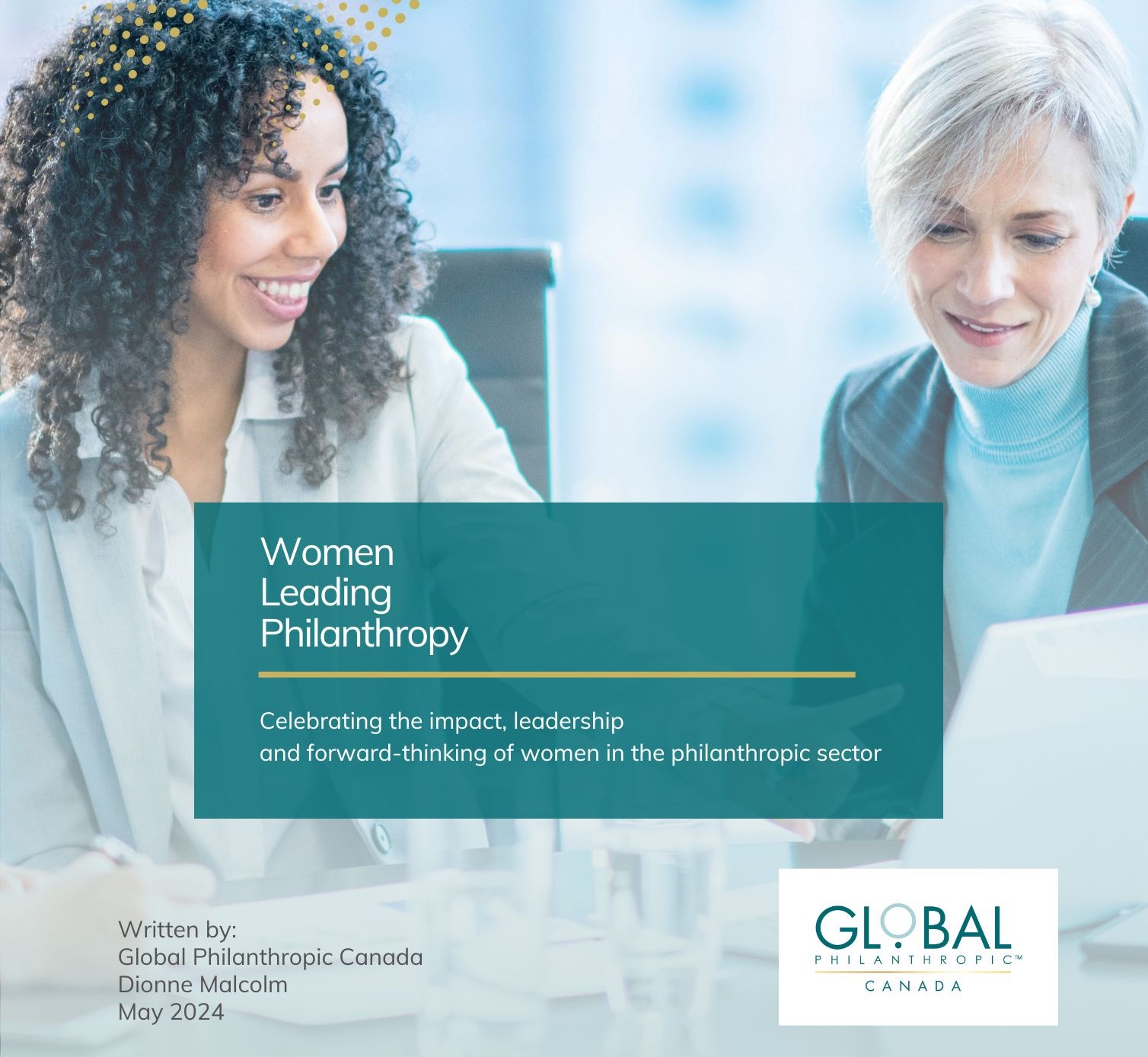- Home
- About Us
- The Team / Contact Us
- Books and Resources
- Privacy Policy
- Nonprofit Employer of Choice Award

Global Philanthropic Canada and author Dionne Malcolm explore the vital role of women in leading the philanthropic sector.
 In their 2022 paper “Diversity is our Strength,” Imagine Canada shared that the Canadian non-profit workforce is 77% women, with 47% being immigrant women and 35% being Indigenous and/or racialized women. Against the backdrop of an industry struggling with disparities, women emerge as the unsung heroes of philanthropy, leveraging their unique skills, experiences, and insight to drive meaningful social and sector impact. Together, they create organizational cultures that empower the next generation of leaders to thrive.
In their 2022 paper “Diversity is our Strength,” Imagine Canada shared that the Canadian non-profit workforce is 77% women, with 47% being immigrant women and 35% being Indigenous and/or racialized women. Against the backdrop of an industry struggling with disparities, women emerge as the unsung heroes of philanthropy, leveraging their unique skills, experiences, and insight to drive meaningful social and sector impact. Together, they create organizational cultures that empower the next generation of leaders to thrive.
The KPMG Women’s Leadership Study entitled “Moving Women Forward into Leadership Roles” sums up the skills women bring to leadership in the field succinctly: “In a world where the attributes of the most effective leaders include the ability to generate collaboration, effective communication and respect, it seems only logical that the path to leadership should be characterized by the same qualities.”
The representation of women comes with direct sector benefits as well. “When women are meaningfully represented and engaged in leadership bodies ... decisions are more likely to be inclusive, representative, and take diverse views into account,” states Women Deliver in their infographic entitled “Women in Leadership.” They continue, “When women hold more executive leadership positions, their companies are more profitable: companies in the top- quartile for gender diversity on executive teams are 21% more likely to outperform the national average.”
Even so, the predominately female workforce of the sector has vast implications for how the work of philanthropy is judged. Research carried out by the Ontario Nonprofit Network has found that the nonprofit sector is viewed in stereotypically feminine ways; that is, as “dependent, nurturing, caring, emotional, unintelligent, unskilled, and requiring guidance and monitoring.” There are clear links between gendered stereotypes and the issues the nonprofit sector faces, including underfunding, excessive monitoring, and not being taken seriously by the public or the government.”
Six female leaders
In this paper, Global Philanthropic Canada sat down with six remarkable female leaders from across Canada, each of whom bring their unique experience and insight to the roles they hold supporting a variety of causes – from the environment, to social services, to culture and capacity building, to higher education, to professional associations, to the arts and culture, to gender and equity advocacy.
Each woman’s work, addressing unique, complex, and deeply impactful challenges in the sector today provides inspiration and thoughtful considerations for anyone working within the philanthropic or charitable landscape. Additionally, each of our leaders provides their insights on the sector as it exists today, what they believe to be the strengths women bring to their organizations, and where we need to look to evolve as individuals, and organizations, to meet the needs of our missions, as well as our workforce.
Download the full version of “Women Leading Philanthropy,” here.
Global Philanthropic Canada is part of a worldwide network of strategic management professionals. Our Senior Consultants deliver professional and affordable executive- level fundraising counsel to organizations of all sizes.
Dionne Malcolm is a Marketing Communications professional with over 15 years of experience within not-for-profit and charitable organizations, developing and driving strategies in brand awareness, marketing campaigns, revenue and lead generation, and web, digital and social media content development.